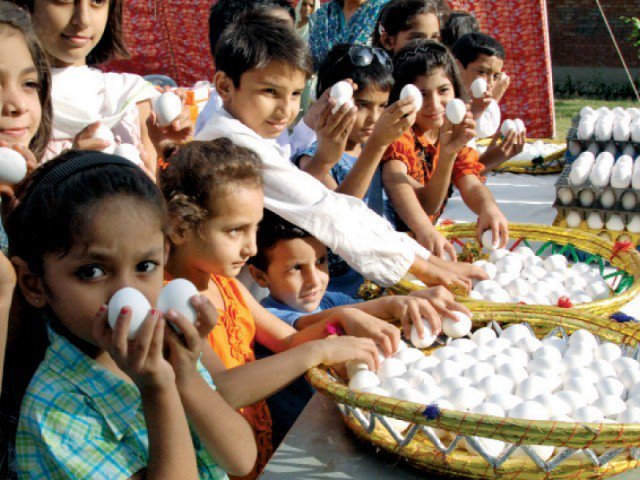
Food fortification, over the years, has become a priority of the governments and development agencies. Nutrients like iodine is added to salt and vitamin A and D to cooking oil and flour to help meet deficiencies in the population, health experts explained.
The Ministry of Planning Development and Reform (MoPD&R) Pakistan, with support from Global Alliance for Improved Nutrition (GAIN) along with Oxford Policy Management has organised a dissemination of Fortification Assessment Coverage Toolkit (FACT) Survey in Islamabad.
This survey is undertaken to determine the coverage and likely contribution of fortified foods to micronutrient intake among women of reproductive age and children under five. Micronutrients are chemicals elements or substances required in trace amounts for the normal growth and development of living organisms.
MoPDR Chief Nutrition and SUN Focal Person Muhammad Aslam Shaheen said that this survey will help to document the accomplishments of on-going food fortification programmes in the country, identify the potential barriers, and provide baseline for future
Food fortification programmes guide and help refine interventions in the light of information received from both the service providers and end users. The market information will be vital to gauge the quality of products and services and identify gaps in food system. There is inadequate information on the coverage and consumption of fortified staple foods in Pakistan.
The FACT survey will provide representative data both at national and provincial level and share information of high-risk populations including women of reproductive age and children in Pakistan.
MoNHSRC Nutrition Director Dr BaseerAchakzai highlighted that the survey provided evidence that fortification of salt and cooking oil and ghee could have a large impact on the intakes of iodine and vitamin A among young children and women of reproductive age in Balochistan, Punjab, and Sindh. However for this to occur, all products would need to be fortified in compliance with the fortification standard. Currently, most of these products are fortified at below standards which call for focus efforts to increase compliance at production level.
GAIN Country Director Dr Qaiser Pasha said that GAIN has already done FACT surveys in 15 countries and Pakistan is the 16th country in the row.
He hoped that the evidence generated through a scientifically rigorous process will be lavishly used by government and partners to inform new programmes and improve on ground implementation.
While presenting the key results of FACT Survey Valerie Friesen, Technical Specialist GAIN shared that salt fortification could fulfil iodine intake requirements among young children and women if all products are fortified according to standards, which is important given there are few natural iodine sources in the diet.
However, the households not consuming fortified iodised salt need to be reached. At least 25% households in Punjab and 16% in Balochistan are free from using iodised salt.
She added that cooking oil and ghee fortification could have a large impact on vitamin A intakes among young children and women. However, for this to occur, all products need to be fortified according to standards. Moreover she added that potential impact of fortified wheat flour is limited as the contribution of flour mill ataa as the production of flour is much less than the total requirement. For which other sources of flour like chakies will have to be explored.
USAID official Abdul Rehman said that USAID has contributed in the conduct of the survey and will continue its support in the future. Cecilia Garzon from UNICEF said that evidence is the only way to change our mode of work and this is the good study to help us in our future programs. Sohail representing government of Sindh said this survey has provided baseline and tools that will be used at field level.
Published in The Express Tribune, August 11th, 2018.
































COMMENTS
Comments are moderated and generally will be posted if they are on-topic and not abusive.
For more information, please see our Comments FAQ